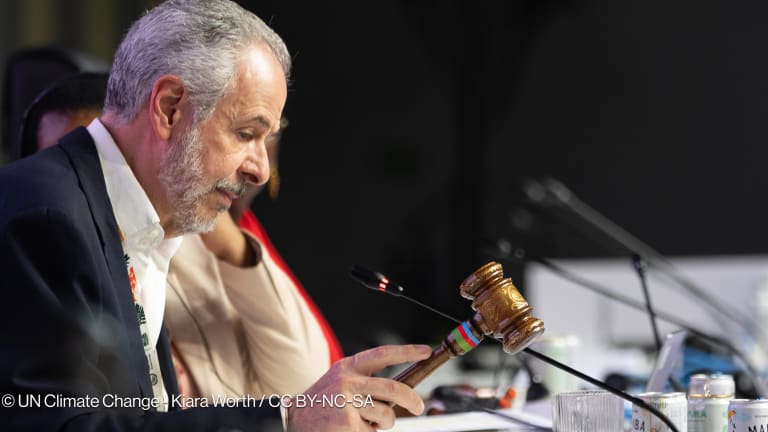
A new, larger climate finance target than $100 billion per year will need to be enacted within four years, according to Patricia Espinosa, executive secretary of the U.N. Framework Convention on Climate Change.
Coinciding with the 76th annual U.N. General Assembly, Devex will convene U.N. agency heads, government leaders, development practitioners, and private sector actors to discuss the most effective ways to build back better. Register here for our daily events.
Discussions for the new climate finance target will need to begin at the United Nations Climate Change Conference in Glasgow this November, Espinosa said at a Devex event alongside the 76th United Nations General Assembly.
High-income countries promised $100 billion per year in climate finance by 2020 to support low-income countries in dealing with the effects of climate change. But despite what Espinosa called the “absolutely critical” importance of the $100 billion to successful climate diplomacy, that target has been missed.
“If you are a developing country and you don't see your partners really delivering on what was promised, it is really eroding trust.”
— Patricia Espinosa, executive secretary, U.N. Framework Convention on Climate Change“At COP 26 we will also have to start a discussion on what will be the climate finance objective after 2025, because this [$]100 billion was the goal for 2020 to 2025. After 2025, we need to go up,” Espinosa said. “This decade is absolutely critical. We need those decisions and we need the resources.”
Alongside paying for the resources needed to deal with a warming climate, failing to provide the $100 billion per year is also undermining confidence in global climate negotiations, according to Espinosa.
All you need to know from UNGA 2021
To get on-the-ground coverage, in-depth analysis, and behind-the-scenes reporting from the 76th U.N. General Assembly, sign up for our special edition newsletters.
She said: “If you are a developing country and you don't see your partners really delivering on what was promised, it is really eroding trust.”
Espinosa described trust as the “basis for international cooperation” and said it was “absolutely the most valuable currency in bringing the world towards a better situation.”
“We really need that commitment to become a reality,” added Espinosa.
Some progress on climate finance is being made at UNGA. Shortly after Espinosa’s comments, U.S. President Joe Biden announced that the United States would double its climate finance funding to $11.4 billion per year.
An Oxfam analysis last year found that the value of climate finance provided was just a third of what was reported, and around 80% of it was loans rather than grants, which add to the debt burden of low-income countries.
Search for articles
Most Read
- 1
- 2
- 3
- 4
- 5








